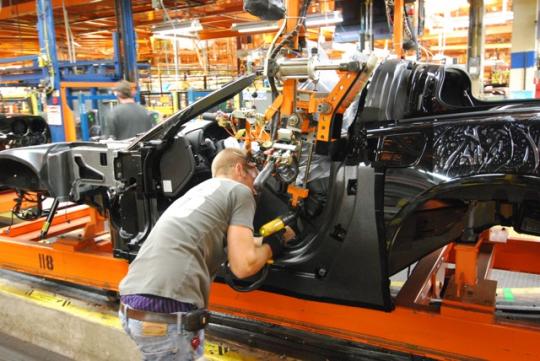These days, who is not a 'knowledge worker'?

Who, exactly, are the "knowledge workers" in an organization? Is it the market analyst mapping out profitability trends? The engineer in R&D? The CFO? What about an assembly-line worker who makes suggestions for improving processes? Or a loading dock worker who is better able to streamline the flow of goods? Or a receptionist who makes on-the-spot decisions about prioritizing visitors?

So, it sounds like everyone, doesn't it?
The concept of the "knowledge worker," a term first coined by management guru Peter Drucker in the 1950s, helped define what it is people do that differs from the agricultural and industrial ages. That is, we're in an economy in which workers use their heads to produce, not their muscles.
Or perhaps that should be: not just their muscles. Indeed, we have tended to glorify the roles of those employees considered to be "knowledge workers" and downplay the contributions of workers engaged in tasks demanding more brawn. At the same time, because lots of tasks these days demand using the old noodle, and interfacing with technology, perhaps everyone is now a "knowledge worker" to some degree. Sort of the same reason we no longer talk about CBT, or "computer-based training" -- all training now involves computers in one way or another.
Three new-economy visionaries, John Hagel, John Seely Brown and Lang Davison, just took up the working definition of knowledge worker and turned it on its head at the Harvard Business review blogsite. As the authors put it:
"We increasingly group the people in our firms into two classes: those who have knowledge and talent and, by implication, those who do not. This segmentation is misleading and damaging to firms in the long run."
Hagel and company argue that any and all tasks these days invoke some level of knowledge work. "Even highly routinized jobs require improvisation and the use of judgment in ambiguous situations, especially if the goal is to drive performance to new levels." The company receptionist, for example, "has to engage in a delicate and sophisticated 'improvisational choreography,' one in which professional competence has to come across through 'interactional proficiency.'"
They hit the nail right on the head, but the injection of knowledge work into any and all tasks is something that has actually been going on for several decades now. For example, in the 1980s, we saw many manufacturers, under the gun from Japanese competitors, turn to their workforces for better ideas on competitiveness. Many launched what were called "quality circles" -- later to be called "productivity" circles or committees -- that solicited input from all levels of employees, from assembly line workers to truck drivers. I know of companies that also had all employees read up and learn total quality management and lean manufacturing techniques. (Whether they actually listened to employees' ideas is another subject for another post...)
Nowadays, in 2010, many "unskilled" workers are expected to interface with computers and input or call up data. And, employees are also finding that their performance and job quality can be enhanced through greater collaboration and networking. Ford may have been onto something a decade ago when it gave all employees free computers and Internet access. Hagel, Brown and Davison add that many key resources for innovation are outside the walls of the enterprise, and social networks will open these resources up for all workers.
Hagel and his fellow contributors renew the call for total participation in operational decision-making. "Everyone, even the most unskilled worker, will be viewed as a critical problem-solver and knowledge-worker contributing to performance improvement."
Excellent idea -- let's bring out the knowledge worker in everyone. Of course, it's going to require some "knowledge work" on the part of executives and managers to design and facilitate workplaces that encourage innovation and the best from all employees. But our economic competitiveness depends on it.
This post was originally published on Smartplanet.com